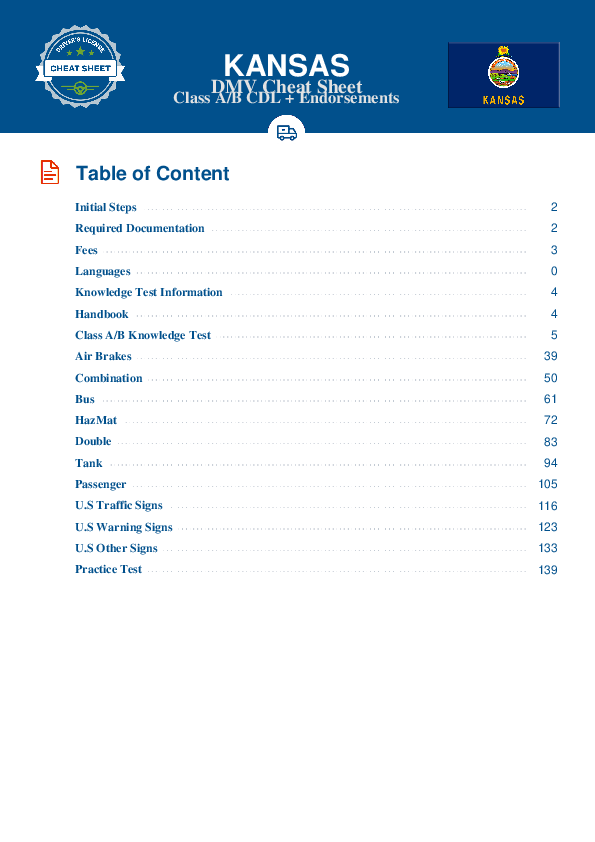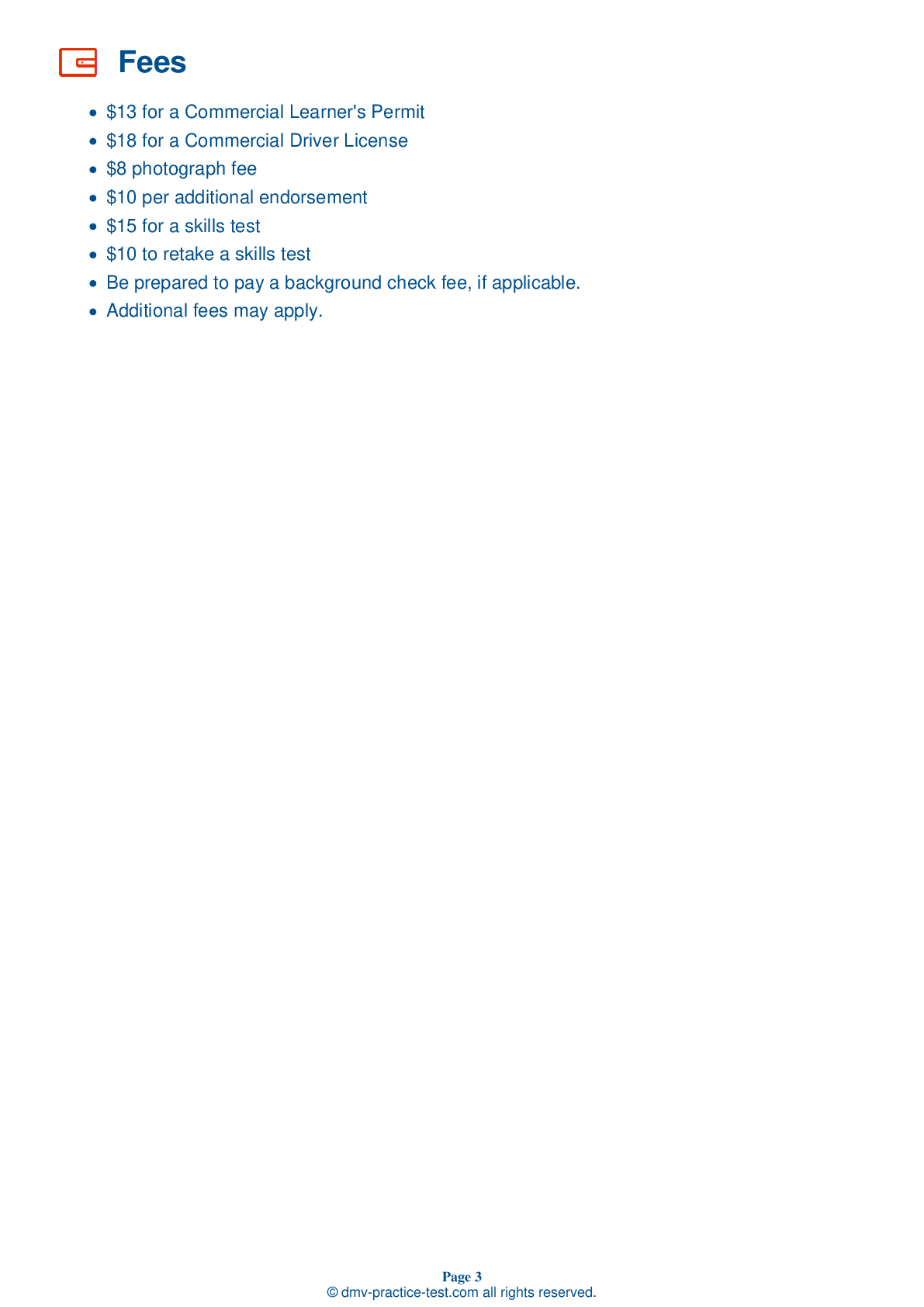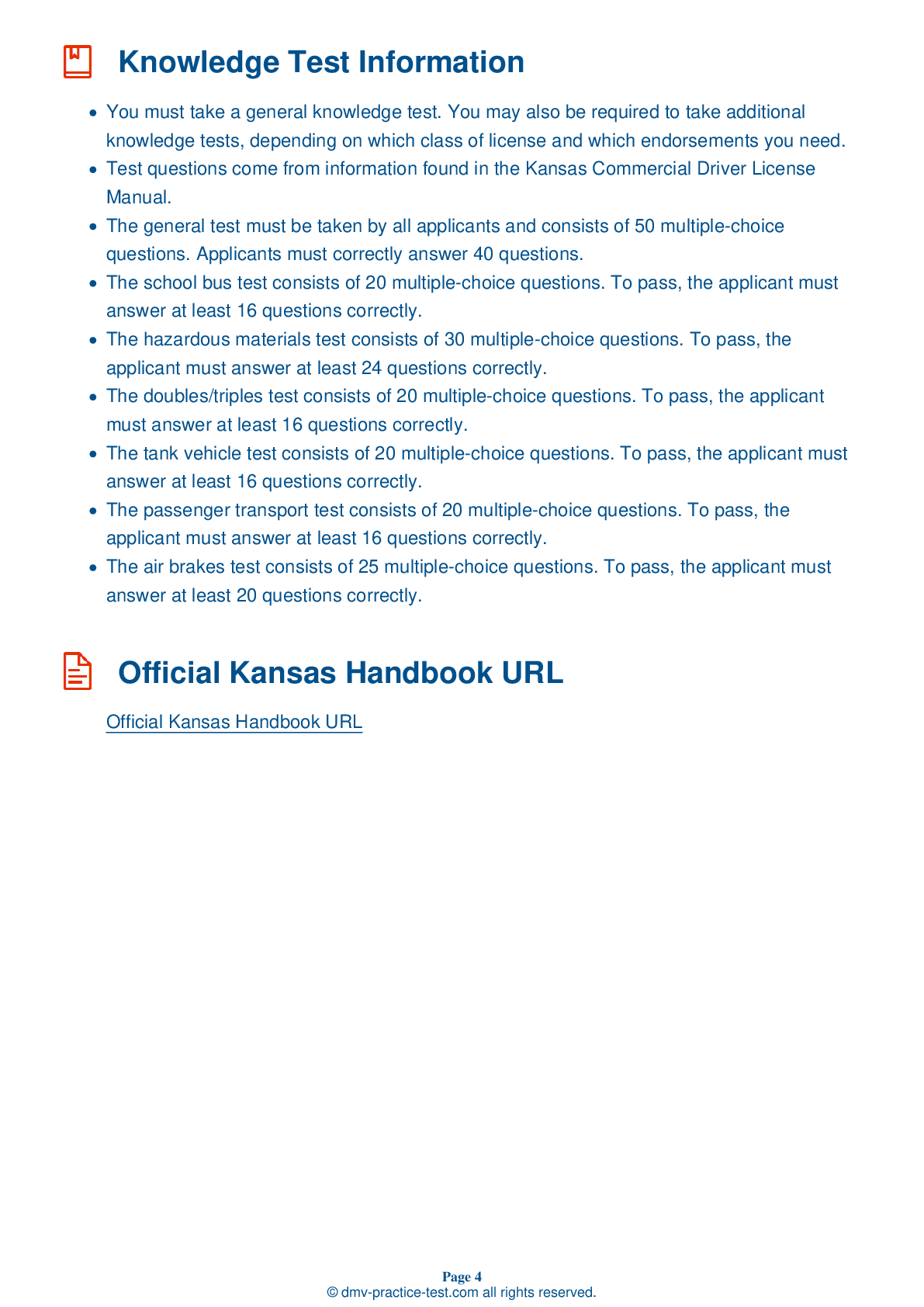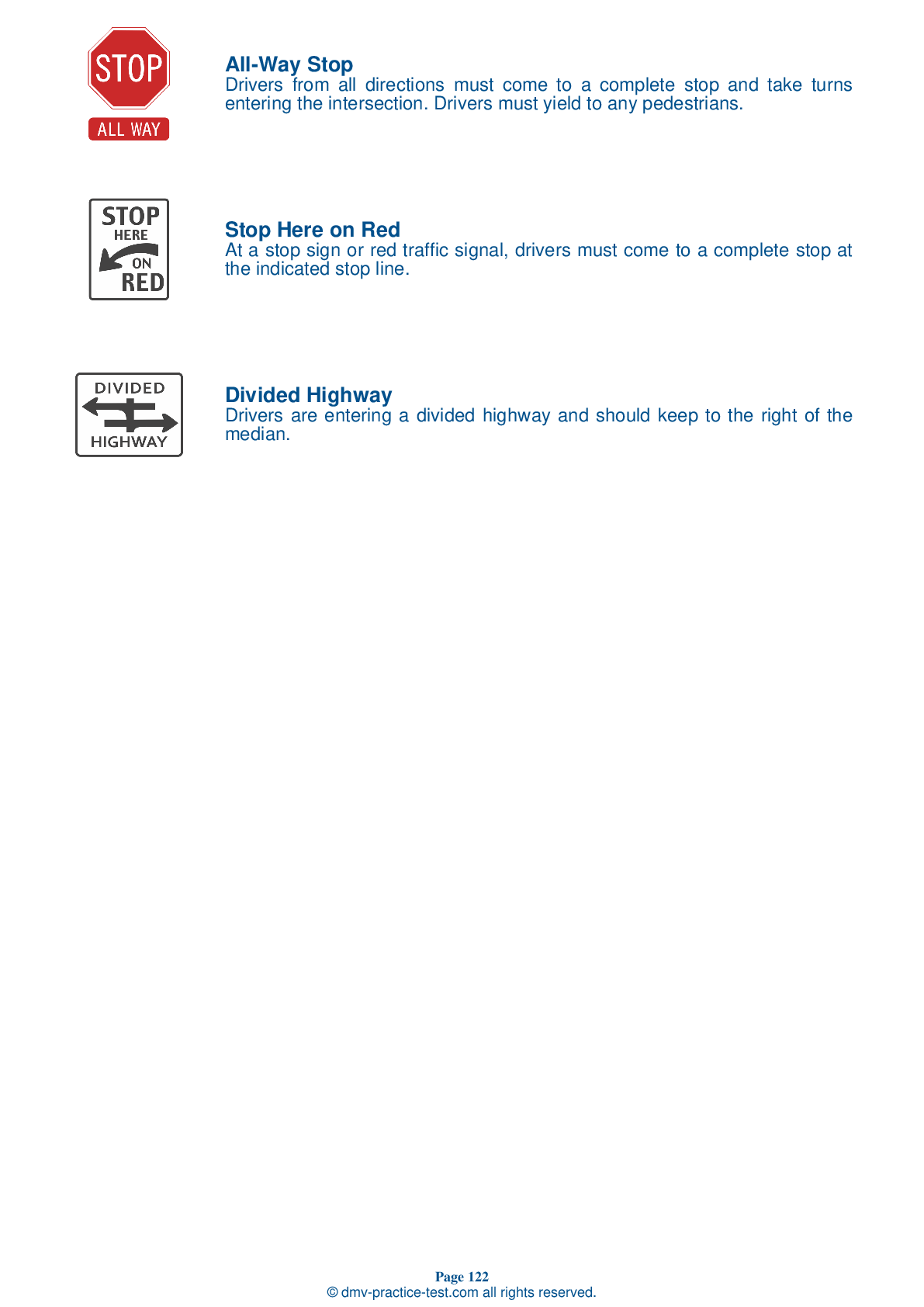Hazmat Test | Kansas 2026 #1
On our website, we provide FREE practice - CDL hazmat test online! The official exam test consists of several obligatory parts, with all of them checking your knowledge of different blocks of road rules. If you need to obtain a KS CDL hazmat endorsement in 2026, practice as much as possible. Free sample tests published on our website will help you check and improve your knowledge and boost your grades. Please bear in mind that Kansas requirements for issuing a hazmat endorsement for CDL may vary from those established in other states.
1 . Portable tanks:
Cargo tanks remain on a vehicle at all times, regardless of whether or not they are carrying cargo. Portable tanks are bulk packaging and are not permanently attached to a vehicle.
2 . Shippers must label hazardous materials. If an item is smaller than its label, how should the item be labeled?
Shippers must place diamond-shaped hazard warning labels on most packages of hazardous materials. If the label won't fit on the package, it can be placed on a tag that is securely attached to the package.
3 . When taking the on-road driving test, you must do all of the following, except:
During the on-road driving test, you must drive in a safe and responsible manner; wear your safety belt; obey all traffic signs, signals, and laws; and complete the test without any accidents or moving violations.
4 . Hazardous materials laws are controlled by:
Because of the risks presented by the nature of the materials, government on federal, state, and local levels may impose regulations on the transportation of hazardous materials.
5 . If your vehicle is equipped with a cargo lift, you should ensure that:
When checking a cargo lift as part of your vehicle inspection test, you should check for leaking, damaged, or missing parts. The lift must be fully retracted and latched securely.
6 . Identification numbers assigned to chemicals can be found:
The United States Department of Transportation (DOT)’s Emergency Response Guidebook (ERG) lists all hazardous chemicals and their assigned identification numbers.
See the exact questions that will be on the 2026 Kansas DMV exam.
99.2% of people who use the cheat sheet pass the FIRST TIME
Lillian MCcranie explains how our CDL study guide was helpful in passing the exam and recommends it to everyone.
Cameron tells us how he purchased the CDL exam, and found it to be a useful tool which helped him pass the exam and find a job.



